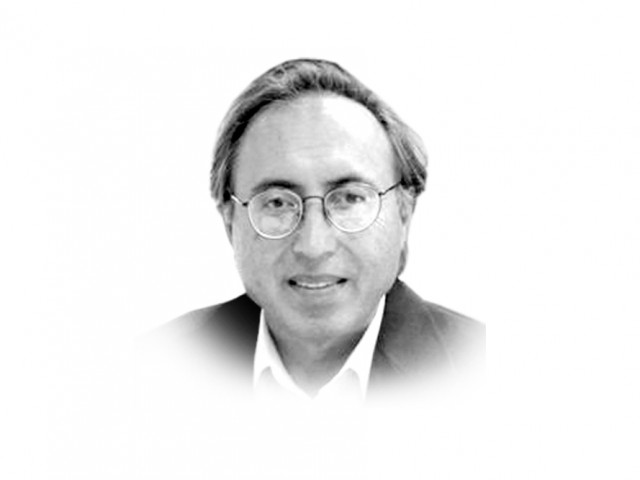No more revolutions
Why do people get so disappointed so soon with governments? Is there any alternative to constitutional democracy?

Let us consider how political parties in power defend themselves against the accusations they face in the media and in society. They present their case on two grounds. First, that they have come to power through democratic means and second, that they have inherited a host of problems from the dictatorial rule of Pervez Musharraf—the energy crisis, the economic downturn, the Balochistan insurgency and the war on terror. These arguments are not without some degree of plausibility.
I would like to add some more difficulties that have added to the burden of political governments: political fragmentation, sharp sectarian divisions, decay of state institutions and constitutional subversion. They weaken society and enable political institutions to strengthen themselves and their political cronies. Some may argue that the rot started much before Musharraf but all evidence shows that the crises of the state and society and multiple polarisations deepened during his regime.
In my view, inheriting problems from previous regimes is no excuse for not doing better. Governments everywhere in the world inherit the good and the bad of their predecessors. By assuming power they accept the challenge of righting the wrongs and charting a new course for the country.
People throughout the world, and more so in Pakistan, judge governments very harshly, and by doing so wash off any good efforts they make. We must stay vigilant against misrule but overdoing it spurs a negative process of de-legitimisation of democratic governments which is happening in Pakistan.
A good number of party leaders and cabinet ministers shouldn’t be where they are. There is an air of arrogance in the corridors of power, and many corruption scandals and attacks on institutions are not without substance. But what is the alternative to democracy in Pakistan? None, even though I am in agreement with critics on the quality of democracy and am against the feudal social class that dominates the electoral process. Just as there are no shortcuts to individual success, there are no short cuts for national success. We have tried the shortcuts of martial rule in the past and each time found ourselves more crippled to walk the path of democratic freedom.
Democracy is the only path that will lead Pakistan to success. Building a true democratic culture will not be easy nor can the task be accomplished in one go or within a few years or decades. It is going to be long transition but with every step we can increase the pace. On the way we need to be patient. Revolutions that we know of belong to the past but we can work towards a revolution of another kind; raising consciousness of people to distinguish between good and bad representatives. This might be hard but it is the only way to improve democracy.
Published in The Express Tribune, September 2nd, 2010.















COMMENTS
Comments are moderated and generally will be posted if they are on-topic and not abusive.
For more information, please see our Comments FAQ